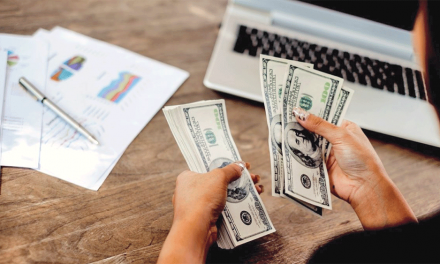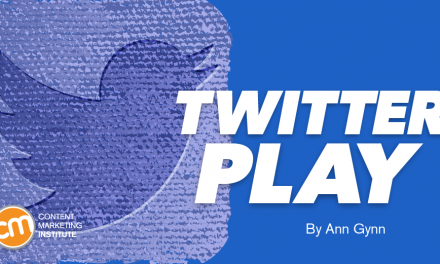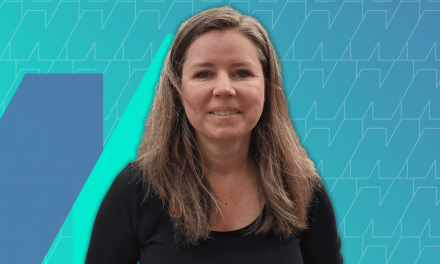Over my many years as an online marketer, I've tried a lot of different types of affiliate marketing.
All of them "work", but some will be a lot more profitable than others for you depending your own business.
So in this article, I'll be covering 5 different types of commissions you can earn, along with pros and cons of each.
Keep in mind that this is just a limited selection based on my own experience, and that there are many other programs out there – mostly quite similar, but some will be better/worse.
1. Physical Products (via Amazon.com)
Personally, most of the products that I buy online are from Amazon.com and they are physical products.
Yes I buy digital and other products from elsewhere but physical products, something I can feel and touch and see in my mailbox or on my front doorstep, is something I’m more likely to buy.
Many other people out there are similar to me, so it’s not surprising that ecommerce (physical product) sales are very high online.
Physical products can be just about anything including vacuum cleaners, TV sets, chopping blocks, vitamins, exercise equipment, books, etc.
The problem, however, as an affiliate of these kinds of products, is that Amazon pays out such a low commission on each sale.
Personally I make a very small amount of commissions each month from Amazon, but in some circumstances it’s the ideal choice for the type of product that I want to promote.
Here are the Pros and Cons…
Pros:
Lots of products to choose from
Compared to purchasing inventory and so forth, being an affiliate means you are just the middle man, so there are lower costs and it’s a simpler model.
If you already have physical products that are selling well, then this can be the ideal ‘backend’ to those ecommerce sales. For example if you already sell chopping blocks on amazon or via your own ecommerce store, you can offer your customers a link to a recommended set of knives on Amazon and make commissions on those sales.
Well recognised and trusted place to shop from
Beyond the product you promote, your commission extends to any other items they add to their cart also for the subsequent 24 hours.
High priced products like Robot Vacuums, decent laptops, etc, can still make 6% commissions look ok if you are making daily sales.
Can be low competition if you choose the right niche
Cons:
Low Commissions, this is a big problem. Most Amazon affiliates make around 6% (they start at 4% and go up to 8.5% if you are making 3131+ sales per month)
Requires a high quality site (they don’t allow new affiliates unless you can show them your site looks reputable and ready to go).
Cookies only last for 24 hours. So if someone clicks your cookie and then they purchase 2 days later, you don’t get the commission.
They don’t accept PayPal. This isn’t a huge con, but for a small percentage of your market who only trusts buying online via PayPal this isn’t ideal.
In most cases it’s far more profitable to be an affiliate elsewhere (see the other recommendations below), or become vendor on Amazon (as opposed to an Amazon affiliate.) Sourcing products from manufacturers in the USA, China or elsewhere, and shipping those products to Amazon FBA, is significantly more profitable, but has higher set up costs and time involved.
2. CPA (Cost Per Action)
CPA marketing involves the lead taking an action, usually in the form of filling out a form, getting a quite, making a small purchase, or filling out a form.
The owner of the offer pays out a commission for each lead you send through their system who successfully completes the 'action'.
There are some decent offers around that will earn $45-60 per action (usually a sale), but they're rare, and typically you'd be looking at a few dollars each.
Example: MaxWeb, A4D
Pros:
Often no refunds
Some offers provide commissions for leads, not just sales
Cons:
Usually pretty low commissions (there are some exceptions)
Some offers are tricky to convert, because they require the visitor to submit a lot of info (annual income, education level, phone number etc)
Can be limited to promoting on certain platforms
3. Low Ticket
There are a lot of low ticket offers out there, but keep in mind most of them were created in order for the vendor to build a list of customers.
It's important to do your research, and check the product you plan on promoting is high quality.
To check, either purchase a copy, or ask the vendor or affiliate manager for a review copy.
If you only stick to higher quality offers, it will pay off in the long run, as you won't be seen as someone who's just trying to push people to any old offer to make a sale.
Example: Clickbank, JVZoo
Pros:
A lot of offers to promote
Many offers have upsells, which you also earn commissions on
Low ticket is often an easy point of entry for making some quick sales
Cons:
Can be tricky finding high-quality offers
Some offers have high refund rates
4. Recurring Billing
Recurring billing offers are a great way to generate ongoing commissions that keep coming in for months or even years after you've promoted.
Take web hosting for example… With 1.5 BILLION websites currently on the web and each requiring hosting, it's a huge market.
If you're able to tap into even just a tiny percentage of that, you can make a killing. Plus your efforts to make even just ONE sale turns into multiple commissions as each rebill comes in.
Examples: Web Hosting (bluehost.com), Site Builders (wix.com)
Pros:
Usually low refund rate
Often high quality (many vendors constantly improve the product to raise the stick rate)
Recurring commissions are great – eg. receiving money for something you may have even forgotten about
Cons:
Some products don't have great stick rates
Can be tricky to initially forecast earnings until stats start coming in
5. High Ticket
High ticket offers are usually digitally delivered and sell for a higher price (e.g. $497 to $2497+)
They are comprehensive offers like coaching programs, high value software, and so forth.
They exist in a number of niches, for example a coaching program on “How To Live Your Dream Life” in personal development, may sell for $499.95, an 8 week online weight loss bootcamp may sell for $699.95, or a product that shows users how to build an online business by following the founder’s own model, may sell for $2500-$10,000.
And these offers typically pay out a 50% commission.
They sell for a higher price because a lot more time goes into their creation (videos, software, possibly a members group, etc), and into their customer service, than what goes into a low ticket product. Plus also the higher price serves to limit the number of people they need to offer support to, and means that can be of a higher quality.
One of my top students, Matt, started out earning commissions from Language Learning programs, getting paid 75% commissions on $99.95 sales.
He was doing well there, but then he had a big leap up in his income when he transitioned to promoting higher ticket products and made over $600k in his 2nd year online.
Pros:
It only takes 2 sales a week of a $2.5k product to make 100k+ per year.
If it’s a high quality product, with a great webinar, and lots of successful students, then usually conversions to sales can be very high (e.g. you get 100 people to a webinar and 5 may purchase a $2500 product).
You don’t need to have a list. You can run paid traffic direct to an article, video or quiz, that then simply leads to a webinar signup page provided by the vendor. If you run paid traffic to this, then that’s all you need to do in order to get the ball rolling.
It’s a great way to monetise the building of your list. If you want to have a list, but don’t know how to monetise it, then one way is to make an option page, and on the ‘thank you page’ where people get to download their free gift from you (a report, or audio track or something), you can also recommend a relevant webinar for them to sign up to (via your affiliate link).
It’s a good ‘relationship builder’ for you and your list (if you have a list.). If it’s a good webinar, then even if people don’t buy from you, they will stay on your list and come back to future webinars and purchase other things from you in the future. A good high ticket product to promote is one that also teaches some things on the webinar itself so that it provides a positive user experience, regardless of if it results in a purchase or not.
Cons:
There are a lot of poor quality programs out there, and for people who are new to earning commissions, it can be very hard to decipher which is a quality program to promote and which is not. It’s important to be picky, as your potential buyers are spending a lot of money here and it needs to be a high quality program.
Mindset. Often newbies feel that lower ticket = easier, and higher ticket = harder. Though they are not easier, nor harder, they are just ‘different.’ Yes it’s easier to make a low ticket sale, but it’s not necessarily easier to make 50 sales at $50 a sale, than it is to make ONE sale at $2500.
Usually high ticket products need a webinar in order to sell them. For some people, setting up an evergreen webinar funnel can seem a bit daunting.
Read more: affilorama.com









